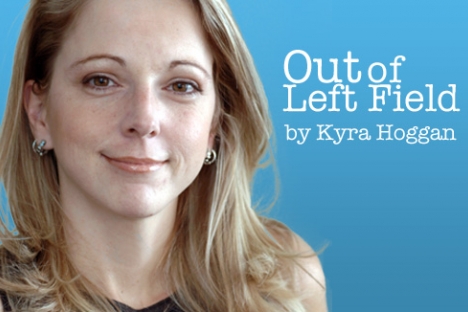RANT: On cops, Crown, courts and criminalty - a wake-up call is required
I just published an article about prolific offenders that is going to have many locals feeling furious, and justly so.
It’s about two local prolific offenders who, between the two of them, are facing 40 separate charges for crimes committed within a two-week span. Both have been arrested – within that time frame – at least three times. So how do they continue committing crimes post-arrest?
The court keeps letting them out on conditions (although thankfully, the 24-year-old woman has finally been remanded in custody pending her next court date).
It’s so, so frustrating to watch, and to know they’ll very likely victimize our friends/neighbours/community members the second they get the chance – heaven knows, arrests and charges seem to have little force or effect in deterring the pair from reoffending.
It’s also infuriating to know that many of the outraged, ugly comments the article will engender will be cop-bashing crap, blaming police for the situation.
What an irrational, simplistic, even downright idiotic interpretation of events – this revolving courtroom door is a greater burden to police than it is to everyone else in our communities combined. Not only are cops having all their investigative efforts essentially negated, they are also tasked with monitoring the (alleged) offenders being released back into the community, which is a massive undertaking (pun intended), and they do it at no small risk to their own safety. Should the person re-offend, police have to go through the entire evidence-gathering investigative process all over again, from scratch – a staggering drain of manpower and resources. But they do it, re-arrest, recommend charges … only to see the offender(s) released into their supervision yet again.
It must be maddening for them.
So then it must be Crown Counsel’s fault, yes?
No.
Prosecutors (Crown Counsel, in Canada) work their guts out to put offenders behind bars and are hamstrung by a faltering, oft-ineffectual system, and are no more to blame than are the police.
So, obviously the courts are to blame, right?
Wrong.
Courts have a responsibility to pick and choose so as not to overburden our already-overwhelmed prison system and look for reasonable alternatives to incarceration. Throw the book at ‘em, you say? Okay. Are you ready to pay triple your current tax bill to make that happen?
Stats Canada says that in 2015/16 adult correctional operating expenditures in Canada totalled over $4.6 billion – that’s the equivalent of $128 for each person in the Canadian population – and that’s based on numbers from four years ago, and is much likely significantly higher today. “Throwing the book at ‘em,” costs the U.S. $181 billion a year.
No, you didn’t read that wrong. In a new report, the Prison Policy Initiative found that mass incarceration costs American state and federal governments a whopping $181 billion a year. That’s money better spent, in my opinion, on health care and education, for starters.
Not to mention the fact that the message is, while we decline to pay for the education of Canadians walking the straight and narrow, we are willing, in fact eager, if recent political campaigns are any indication, to pay handsomely to send offenders to the very best criminal training institution the world has known, where criminality is normalized and often admired – prison.
Brilliant choice, that.
Wait, though – we’ve ruled everything out – who can we blame for this?
The truth is, and this will infuriate people demanding a simple solution to an astoundingly complex problem, we can only blame ourselves. Until or unless we start taking responsibility as individuals, as communities, as provinces and as a country, this problem is only going to go from bad to worse.
As you may have noted, my bias is pro-cop, pro-Crown, pro-court – even pro-criminal insofar as I think proactive intervention could save many of them from choosing crime to begin with – but most of all, pro-common sense.
It’s impossible to get hard statistics on the recidivism rate in Canada – no one can even agree on how to define the word (does it mean re-arrest or re-conviction, does it refer only to adults or youth as well, the argument rages on and on ad naseum), much less how to collect the data, and it’s a politic quagmire I don’t want to wade into, except to say that I think it’s a number many agencies would prefer not to pin down, so as to avoid the public outrage that would surely ensue.
What most agencies seem prepared to agree on are the root societal causes of crime: poverty, homelessness, mental illness and addictions.
That’s not to say that eradicating all four of these wouldn’t leave us with a handful of yahoos who delight in douchebaggery and will decline under any and all circumstances to govern themselves. And I’m cynical enough not to believe we actually will eradicate any of the four societal underpinnings of criminal behaviour. I’m not trying to be a Pollyanna ray of sunshine, here, I’m trying to be pragmatic.
And pragmatism, to me, says we should continue on with our reactive, punitive system – but shore it up and ease the pressure on it with proactive solutions instead of doing nothing and crying victim when it doesn’t go our way.
We should be throwing the full force and effect of our wealth, our energies, and our power as Canadian citizens behind poverty reduction, low-income housing, early mental health intervention (along with long-term supports), and addiction treatment.
And this isn’t some sucky, Kumbaya, ultra-left-wing lovefest I am proposing – it’s hard, cold, pragmatic self-interest.
I don’t want to be the victim of crime, I don’t want to pay the bills for tens of thousands of incarcerated criminals, I don’t want to pay for ever-increasing police forces, court systems, theft-related insurance premiums … the list goes on. I have better ways to spend my money, thanks.
The upshot is, yes, we can continue being short-sighted, childish victims, whiningly seeking someone to blame instead of aiming for actual solutions … or we can grow the hell up and start taking responsibility for our own well-being, which perforce requires taking some responsibility for the community around us as well.
If we don’t, we deserve exactly what we get.
Rant over.
























